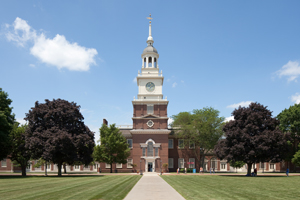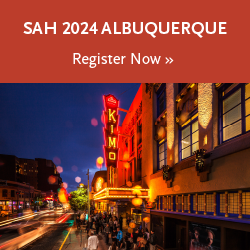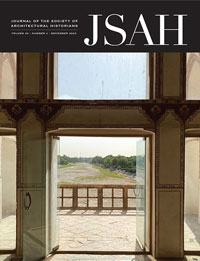-
Membership
Membership
Anyone with an interest in the history of the built environment is welcome to join the Society of Architectural Historians -
Conferences
Conferences
SAH Annual International Conferences bring members together for scholarly exchange and networking -
Publications
Publications
Through print and digital publications, SAH documents the history of the built environment and disseminates scholarship -
Programs
Programs
SAH promotes meaningful engagement with the history of the built environment through its programsMember Programs
-
Jobs & Opportunities
Jobs & Opportunities
SAH provides resources, fellowships, and grants to help further your career and professional life -
Support
Support
We invite you to support the educational mission of SAH by making a gift, becoming a member, or volunteering -
About
About
SAH promotes the study, interpretation, and conservation of the built environment worldwide for the benefit of all
No More Plan B by Anthony T. Grafton and Jim Grossman
 New graduate students file in. They're nervous, they're eager, they don't know quite what to expect. If the director of graduate studies does the job well, the annual orientation ritual will nourish their anticipation while allaying their anxieties. Still, out of a sense of responsibility, faculty members should keep one source of reasonable trepidation on the table: the job market. It is what it is, and new students need to enter with their eyes open to it.
New graduate students file in. They're nervous, they're eager, they don't know quite what to expect. If the director of graduate studies does the job well, the annual orientation ritual will nourish their anticipation while allaying their anxieties. Still, out of a sense of responsibility, faculty members should keep one source of reasonable trepidation on the table: the job market. It is what it is, and new students need to enter with their eyes open to it.
But open to what? And what is the "it" that is the job market for historians? Academe alone? That is what we say when we offer statistics on placement. That is what we say when the department placement officer proffers the annual warning that ye who enter here do so at your own peril. Most orientations include a reference-in the best cases even some focus-on "alternative" careers. But the default, the hope, the gold ring, is the tenure-track position.
A curious irony. On the one hand, the intellectual experience that awaits our students is probably richer now than it has ever been. Traditional core fields like political and diplomatic history are experiencing revivals, new fields like transnational history are expanding, and new methods are being forged and honed. The old economy of scarcity that limited research in the early years of graduate school to the stacks of one's own university library has made way for a digital Land of Cockaigne. Verbal, visual, and aural sources from dozens of cultures crowd the screen of anyone enrolled at a university.
Read the rest of this article at The Chronicle for Higher Education website
photo of Henry Ford Museum by David Schalliol



Leave a commentOrder by
Newest on top Oldest on top